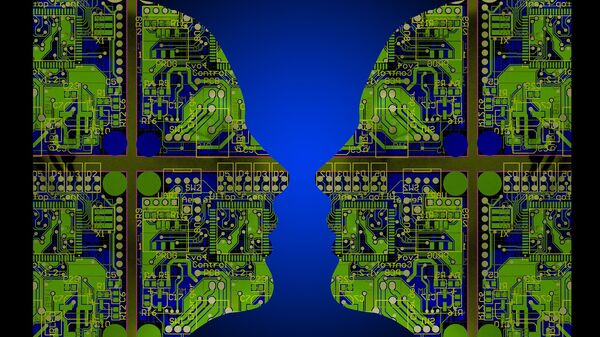Moreover, the applications in many industries and sectors are increasing on a daily basis. The report also cited some experts saying that the foreign ministry is already using an early version of the Al system.
Radio Sputnik discussed the issue with Dr. Steven White, who earned his doctorate at MIT and now teaches at Tsinghua University in Beijing.
Sputnik: In your view, how realistic are China's goals to implement artificial intelligence into diplomacy?
READ MORE: China Planning to Deploy Large Unmanned AI Submarines by 2020s
Sputnik: What do you think are the main factors contributing to China's advancements in artificial intelligence?
Steven White: Basically, they're really serious about it, that's one thing. Secondly, their seriousness is being translated into action in terms of, first, massive resources from the government and from private companies being put into it. And the second thing, and maybe this is what distinguishes it from the US, for example, is their ability and willingness to coordinate action across government and private sectors, including universities, government research institutes, private company research institutes etc. I think that coordination and collaboration multiply the potential benefits as opposed to every organization, companies and research institutes pursuing it separately. I think that the coordinated effort will give them a lot of benefits.
Sputnik: How do you think the United States and Russia would respond to China's initiative?
Steven White: One is the economic sphere, but obviously the security and military spheres have huge implications because the core technology of AI can be applied in all these dimensions, all these areas. From an economic point of view, it's going to give incredible benefits to companies producing things and maybe producing new products and services. Obviously, from a military point of view, the next war isn't going to be won by tanks and guns, it's going to be won by IT and anyone who leads in that area is going to the next war.
READ MORE: Speak Softly and Carry a Big Processor: China to Soon Conduct Diplomacy With AI
Sputnik: What kind of reaction can this have on the geopolitical landscape?
Steven White: Obviously, huge. It's not clear that anyone knows what to do with this, because you have people coming from traditional areas, military or corporate, and they're facing this very new paradigm where the competition is in these bits and bytes, whether it's virtual in systems or whether it's embedded in hardware technology. I think it's going to be interesting to see how some older types with older ways of thinking… whoever is able to jump to the new paradigm is probably going to have an advantage.
Sputnik: Are there any negative consequences?
Steven White: That's an interesting and very important question. Obviously, there's a lot of discussion with AI, whether you're talking about employment issues or talking about the ethical issues. "Can machines make ethical decisions?" may be the biggest question and the more that a country, a company or a product relies on a machine to make decisions, there's always a question of "Is that going to be the right decision from an ethical point of view?" I think that's maybe the biggest question going forward in applications of AI, whether it's making a product that's in your home or whether it's making a ship, a missile, a drone that's going to be making decisions about life and death.
The views and opinions expressed by the contributors do not necessarily reflect those of Sputnik.




